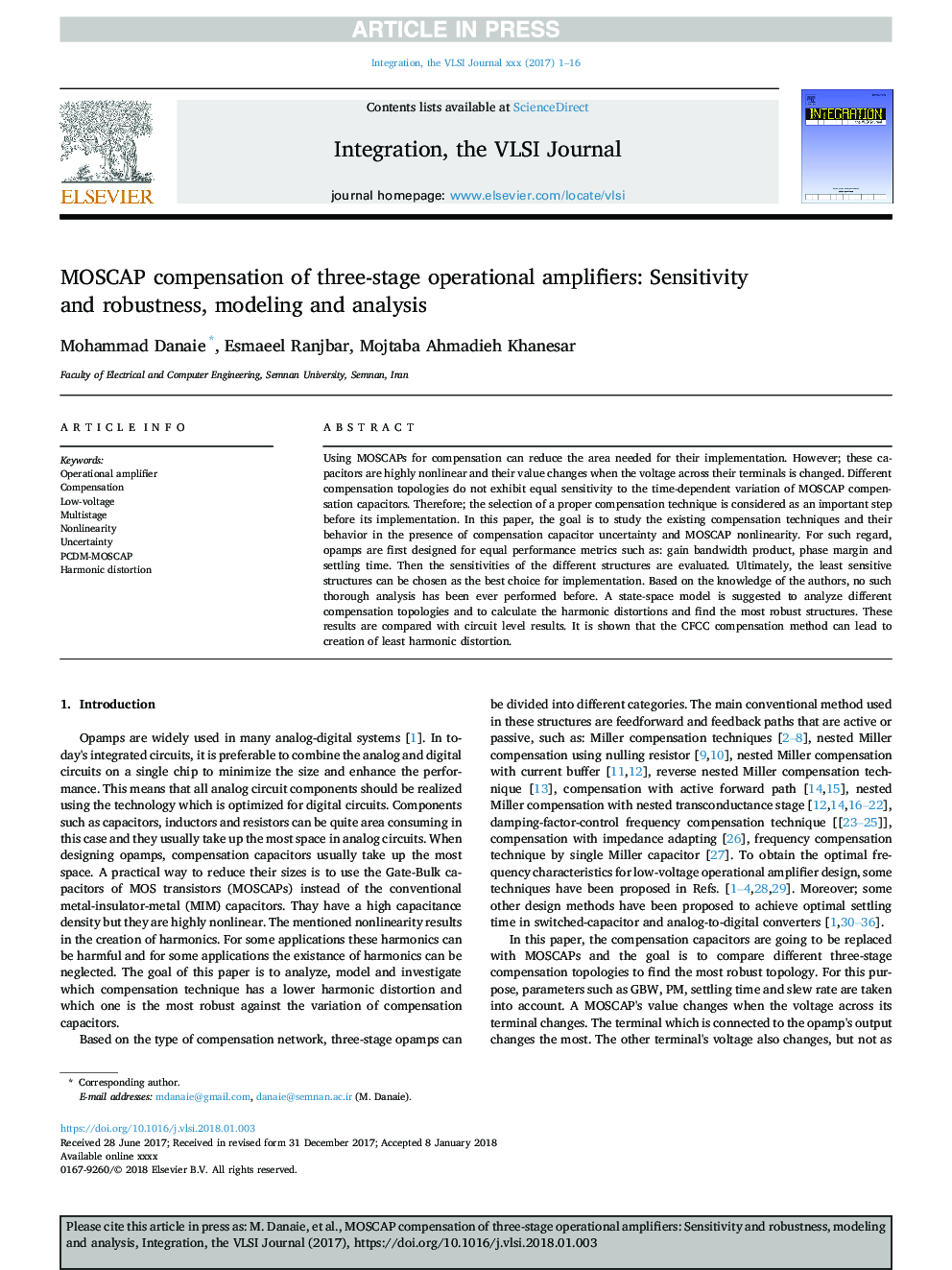| Article ID | Journal | Published Year | Pages | File Type |
|---|---|---|---|---|
| 6942100 | Integration, the VLSI Journal | 2018 | 16 Pages |
Abstract
Using MOSCAPs for compensation can reduce the area needed for their implementation. However; these capacitors are highly nonlinear and their value changes when the voltage across their terminals is changed. Different compensation topologies do not exhibit equal sensitivity to the time-dependent variation of MOSCAP compensation capacitors. Therefore; the selection of a proper compensation technique is considered as an important step before its implementation. In this paper, the goal is to study the existing compensation techniques and their behavior in the presence of compensation capacitor uncertainty and MOSCAP nonlinearity. For such regard, opamps are first designed for equal performance metrics such as: gain bandwidth product, phase margin and settling time. Then the sensitivities of the different structures are evaluated. Ultimately, the least sensitive structures can be chosen as the best choice for implementation. Based on the knowledge of the authors, no such thorough analysis has been ever performed before. A state-space model is suggested to analyze different compensation topologies and to calculate the harmonic distortions and find the most robust structures. These results are compared with circuit level results. It is shown that the CFCC compensation method can lead to creation of least harmonic distortion.
Keywords
Related Topics
Physical Sciences and Engineering
Computer Science
Hardware and Architecture
Authors
Mohammad Danaie, Esmaeel Ranjbar, Mojtaba Ahmadieh Khanesar,
